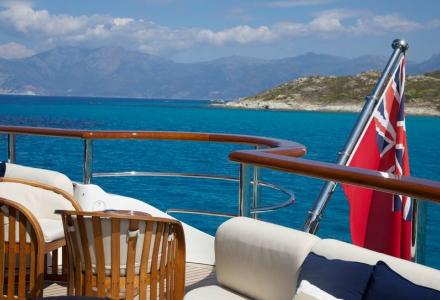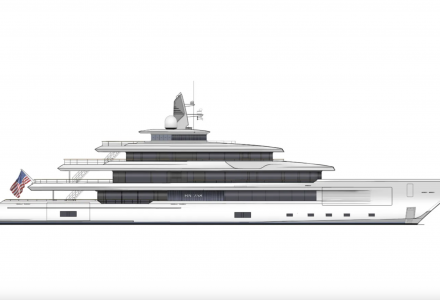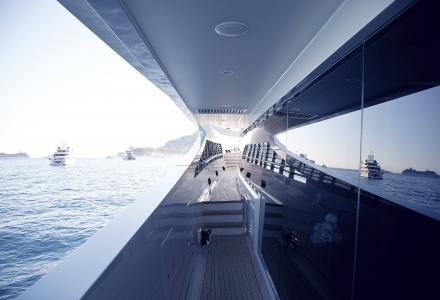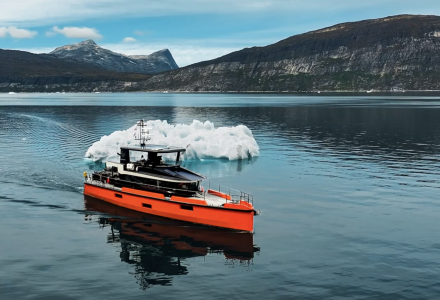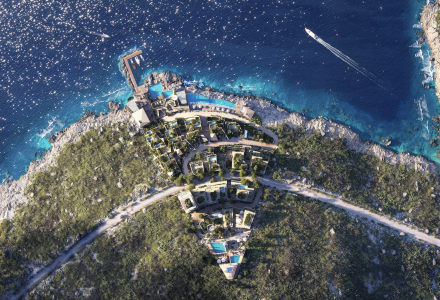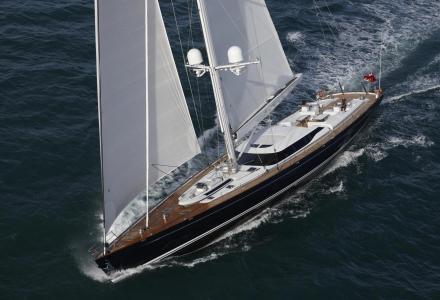When one thinks of the yachting sector, images of opulence and wealth are the first to come to one's mind. Inevitably, those lavish stereotypes are the ones that the general public associates the industry with. As an extension, yacht owners are often viewed as irrational beings who have too much money to spend. These portrayal is however satiric at best and doesn(t reflect the many benefits yacht owners bring to economies.
Superyachts tend to stand out in most marinas and hence draw a lot of attention to themselves, exciting the curiosity and fueling the jealousy of many. It might therefore come as no surprise that when FinandField conducted a survey amongst its audience, mostly composed of hunting and fishing sportsmen, 40% answered that they considered yachts to be a waste of money.
There has arguably been a long-standing history of magazines highlighting the craziest events held onboard super yachts dating back to Onassis's parties in Monaco on Christina O and passing through Malcom Forbes' annual 4th July cruise on the Highlander. As a result, the view that the general public has of yacht owners is somewhat distorted. The vast majority of owners keep their lives extremely private. Relaxing, family friendly cruises simply don't make good enough headlines to sell.
When Tatoosh, the 92.4 meter yacht owned by Microsoft co-founder, Paul Allen has allegedly destroyed part of a reef in the Cayman Islands with her anchor, it was only the pejorative side of the story that was broadcasted by mainstream media. The fact that Mr Allen had proposed a plan to local authorities to rebuild the reef shortly after has however been mostly overlooked.
Selfless acts made by yacht owners are actually not that rare and fall within the much less discussed opposite side of the spectrum. In March 2015, cyclone Pam hit the island nation of Vanuatu located in the South Pacific. To assist with humanitarian efforts, the owner of the 73m Dragonfly sent his yacht to bring medical aid and doctors to remote areas that needed immediate care.
In addition to the overall generous nature of yacht owners, the industry as a whole is an extremely efficient distribution of wealth all by itself. Profit margins for shipyards orbit around 3-4% with most of the expenses going to an extensive number of staff and materials. Bob Saxon, former CEO of IYC, commented "There is no greater redistribution of wealth than to build a yacht. Thousands of workers employed five years, and when the yacht is delivered it is an impressive consumer of goods and services."
As a rule of thumb, yacht maintenance costs 10% of the purchase price which for yachts of around 50 meters is generally near the 2 million dollar mark. The lion share of these expenses is going to crew members. During its operation, a yacht will also require the services of marinas to dock and refuel. Many suppliers are also stocking the yacht with anything from food and beverages to water toys.
Yachts are in fact not so different from companies, most of them are even registered as an Llc for tax reasons. Masses seem however to show much more resentment to yachts as opposed to multinational firms. These superyachts however can have much bigger impacts on local economies and create more jobs than more traditional types of developments.
Thailand, long-inaccessible to yachts due to regulations, has opened up its waters at the end of last year. This comes with a push from the Thai government to create a yachting hub in Phuket to stimulate its economy. "People who own yachts are above-average wealthy individuals, which is the kind of tourist we want to attract to Phuket" said Gulu Lavlani, chairman at the Royal Phuket Marina. The marina in question has set out an extensive, multi-million dollar plan to enhance its facilities.
It therefore seems clear that yacht owners are extremely positive players in economies and might sometimes be depicted as much more extravagant than they really are. In fact, most people never hear about educated and generous yacht owners that are simply to dull for media to report on.
Superyachts tend to stand out in most marinas and hence draw a lot of attention to themselves, exciting the curiosity and fueling the jealousy of many. It might therefore come as no surprise that when FinandField conducted a survey amongst its audience, mostly composed of hunting and fishing sportsmen, 40% answered that they considered yachts to be a waste of money.
There has arguably been a long-standing history of magazines highlighting the craziest events held onboard super yachts dating back to Onassis's parties in Monaco on Christina O and passing through Malcom Forbes' annual 4th July cruise on the Highlander. As a result, the view that the general public has of yacht owners is somewhat distorted. The vast majority of owners keep their lives extremely private. Relaxing, family friendly cruises simply don't make good enough headlines to sell.
When Tatoosh, the 92.4 meter yacht owned by Microsoft co-founder, Paul Allen has allegedly destroyed part of a reef in the Cayman Islands with her anchor, it was only the pejorative side of the story that was broadcasted by mainstream media. The fact that Mr Allen had proposed a plan to local authorities to rebuild the reef shortly after has however been mostly overlooked.
Selfless acts made by yacht owners are actually not that rare and fall within the much less discussed opposite side of the spectrum. In March 2015, cyclone Pam hit the island nation of Vanuatu located in the South Pacific. To assist with humanitarian efforts, the owner of the 73m Dragonfly sent his yacht to bring medical aid and doctors to remote areas that needed immediate care.
In addition to the overall generous nature of yacht owners, the industry as a whole is an extremely efficient distribution of wealth all by itself. Profit margins for shipyards orbit around 3-4% with most of the expenses going to an extensive number of staff and materials. Bob Saxon, former CEO of IYC, commented "There is no greater redistribution of wealth than to build a yacht. Thousands of workers employed five years, and when the yacht is delivered it is an impressive consumer of goods and services."
As a rule of thumb, yacht maintenance costs 10% of the purchase price which for yachts of around 50 meters is generally near the 2 million dollar mark. The lion share of these expenses is going to crew members. During its operation, a yacht will also require the services of marinas to dock and refuel. Many suppliers are also stocking the yacht with anything from food and beverages to water toys.
Yachts are in fact not so different from companies, most of them are even registered as an Llc for tax reasons. Masses seem however to show much more resentment to yachts as opposed to multinational firms. These superyachts however can have much bigger impacts on local economies and create more jobs than more traditional types of developments.
Thailand, long-inaccessible to yachts due to regulations, has opened up its waters at the end of last year. This comes with a push from the Thai government to create a yachting hub in Phuket to stimulate its economy. "People who own yachts are above-average wealthy individuals, which is the kind of tourist we want to attract to Phuket" said Gulu Lavlani, chairman at the Royal Phuket Marina. The marina in question has set out an extensive, multi-million dollar plan to enhance its facilities.
It therefore seems clear that yacht owners are extremely positive players in economies and might sometimes be depicted as much more extravagant than they really are. In fact, most people never hear about educated and generous yacht owners that are simply to dull for media to report on.
